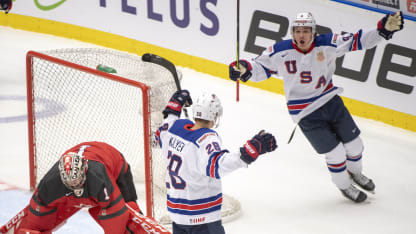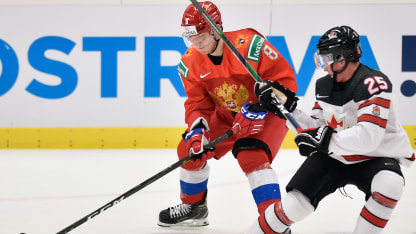"The Russians use two units and it's a hybrid 1-3-1 bumper that they run. If you watched Russia against Canada, you saw Ivan Morozov (Vegas Golden Knights) on one unit and Pavel Dorofeyev (Vegas Golden Knights) on the other in the middle of the 1-3-1, but both aren't locked into the mid-slot by the hash marks. They can walk the ladder up higher and also track the puck to opt out in a more east-west fashion to act more in a third-man high, as opposed to the traditional bumper. Lost yet? What this all means is these two, on different units, are very active and draw some coverage concerns for the U.S. forwards. They also create a lot of seams and, to me, the United States has been a little susceptible to the seam pass low (or pass within the coverage as opposed to around it). U.S. assistant coach Steve Miller, a proven winner and brilliant penalty-killing coach, must be itching to match with these two power-play units from Russia. How the United States kills penalties and winning this area, in my opinion, dictates the game. On a side note, the Russia defense corps loves to be in the attack. I expect them to get the green light 5-on-5 to be in the play a lot."



